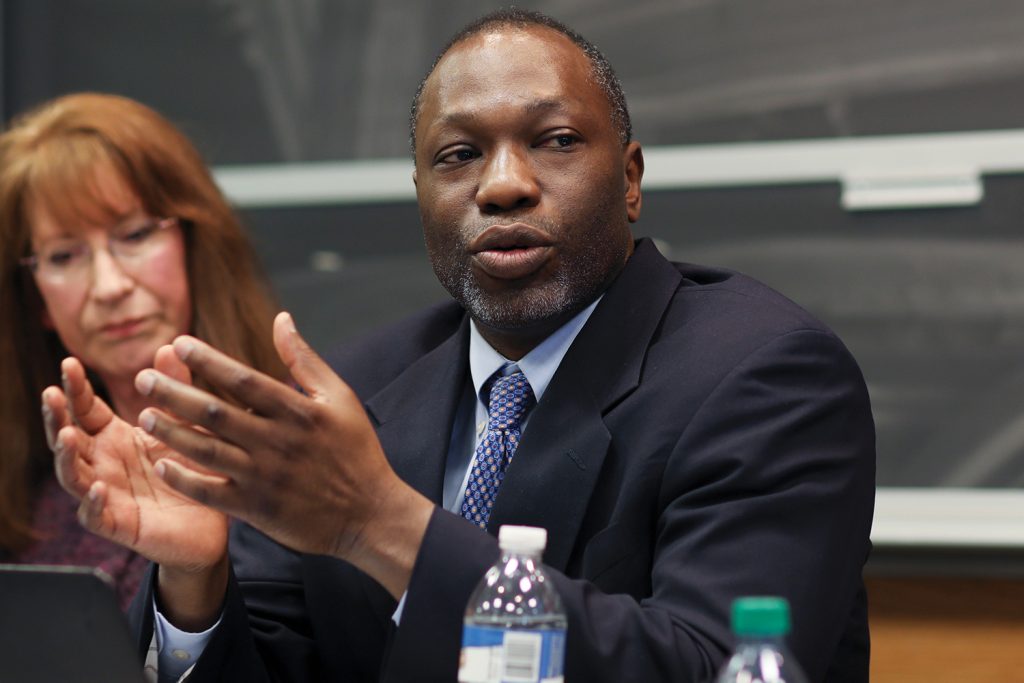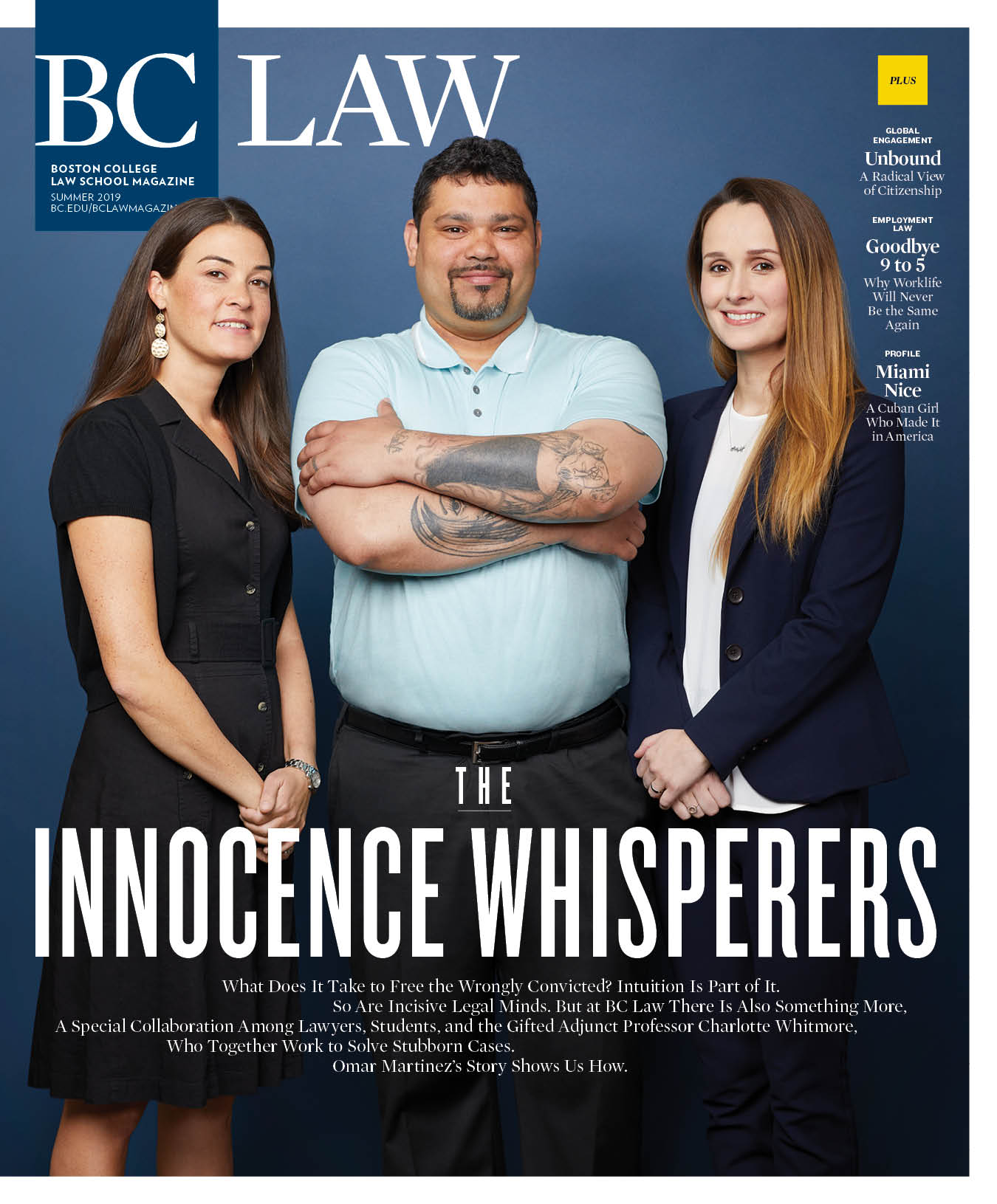Saying there’s a disconnect in our campaign finance system, that the typical donor is older, white, and wealthy, and that super PACs are becoming less influential, four experts addressed the problems surrounding campaign finance last February at an event presented by BC Law’s Rappaport Center for Law and Public Policy.
“If you think about our system, it’s so strange. Because we all vote in these geographic districts, and yet we can send money across the border to finance campaigns that are not in the districts that we’re in,” said panelist Eugene Mazo of Rutgers University.
Mazo believes there is a “total disconnect” in our campaign finance system between people who vote and people who donate—leaving politicians asking themselves, “Am I trying to please my constituents or contributors?” Furthermore, he added, donors “tend to be older, tend to be white, tend to be wealthy, tend to have different policy positions, and tend to be the very extremes of the political spectrum.”
Paul Diego Craney of the Massachusetts Fiscal Alliance, however, does not believe government officials should be the ones restricting speech. “Campaign finance law is used as a weapon to silence opposing views and speech,” he said.
He also argued that political action committees that are able to accept unlimited political donations are having less influence because candidates simply cannot control the timing or the message these groups are sending to the public.
Guy-Uriel Charles of Duke University and a visitor at Harvard observed that lifting the veil on anonymous donations to such nonprofit political groups is key to identifying the “ruling class” of America. “Disclosure is…how you know who your ruling class is, who gets to sit in the front of the bus, who gets to ride in first class,” he said.
Recognizing that candidates nonetheless need money to communicate with constituents, Pam Wilmot of Common Cause Massachusetts provided a possible solution to the issues her colleagues on the panel raised. In order to “really fix our elections,” she said, we need a more robust system of public financing for elections.
Photograph above: Duke University Professor Guy-Uriel Charles.
Other spring Rappaport events included:
- “A Special Responsibility for the Quality of Justice,” the inaugural lecture in which former Connecticut Governor and last semester’s Jerome Lyle Rappaport Visiting Professor Dannel Malloy ’80 talked about guiding public policy.
- “Debt, Degrees, and Democracy: A Critical Look at the Value of College Completion,” which brought together two dozen experts from around the world.
- “Charging Decisions and Public Safety,” featuring, among others, Suffolk County District Attorney Rachel Rollins.



